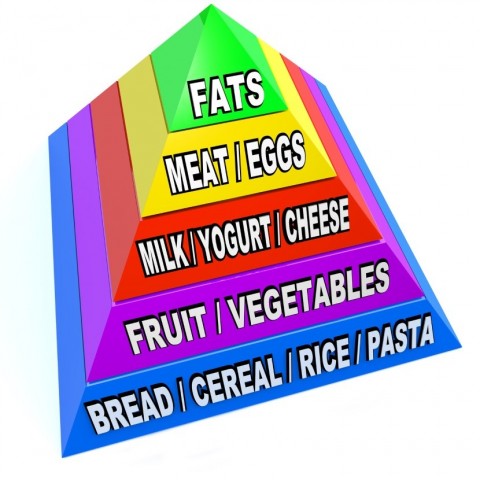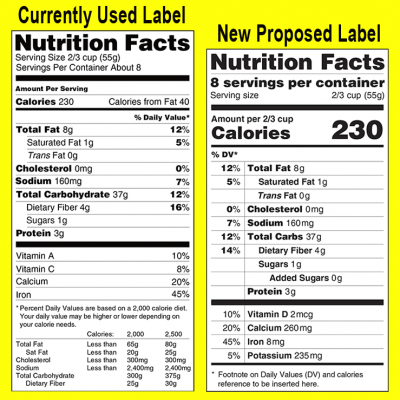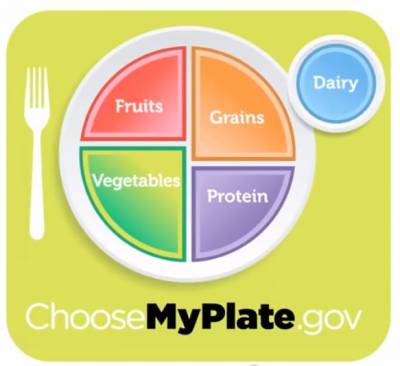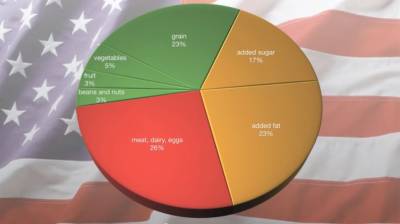Our taste preferences and emotional attachment to food begin during the very first years of childhood. As a result, our adult food choices are based on learned principles that we have been exposed to throughout our lives. Hearing the same information repeated over many years (and from many different sources) also reinforces these beliefs. For...
DrCarney.com Blog
The majority of disease, disability and premature death seen by medical professionals today originates from a nutrient and fiber-deficient diet, which has led to an epidemic of poor health and astronomical health care costs. In fact, according to the World Health Organization, 80% of all deaths are caused mostly by poor diet and lifestyle habits....
Conflicting "scientific studies" regarding what characterizes a healthy diet saturate our media daily. For example, it's been well established that saturated animal fat promotes chronic disease, yet due to popular (and misguided) news reports this fact has been rejected by those who support a high-fat/protein, low-carb diet. Similarly, we've heard that eggs are bad for us, only...
Which food contains more antioxidants - eggs or whole plant foods? Eggs are marketed for containing high levels of antioxidants, which play an important role in fighting disease. The egg industry boasts: "One egg has 13 essential vitamins and minerals in varying amounts, high-quality protein, and antioxidants, all for 70 calories." But are they really...
If we were to say the words "calcium," "protein" or "iron" what images or words would that bring to your mind? If you were to answer milk, eggs, and beef, you're not alone. Most of us are not aware that we have fallen for the clever marketing strategies used by big food industries. This blog...
A new proposed Nutrition Facts label will provide some good information that has been missing but also removes some extremely important information from the Nutrition Facts label.
- FDA proposing adding the display of Added Sugars which we commend!
- FDA proposing removing the display of Calories from Fat which we lament!
Why do we care?
With the removal of the Calories from Fat we will no longer be able to calculate the Percentage of Calories from Fat (AKA Calorie Density) which is important information to aid people in combating our growing obesity epidemic. We have always wished for the Percentage of Calories from Fat to be ADDED to the Nutrition Facts label. Up until now this values has NOT been displayed but could be calculated by dividing the Calories from Fat by the Total Calories. Now the plan is to remove the values which allow us to do the calculation.
Stop what you're doing for a moment and take some time to think about how you would answer the following question. What guidelines do you use when making food choices for your family's nutritional needs? Do you consider news reports to be a reliable source? What about the USDA recommendations? Our food choices are most...
A few years ago, a healthy eating index was created that measured the percentage of dietary calories that comes from phytochemicals in whole plant foods. According to the latest data representing the standard American diet, the typical American scores a woeful 12 out of 100. This means that 88% or more of the calories consumed...
Dr. John McDougall's excellent article, USDA Demonizes Starch, While Promoting Meat, Dairy, and Disease, explains how USDA dietary guideline policies have significantly impacted the health of our families. Dr. McDougall's article states: "The USDA has the responsibility for overseeing food safety. But, it also has an opposing responsibility to promote agricultural businesses. Nearly 150 years after its creation, tens of thousands of small farms have been bought up and concentrated into a few large politically influential corporations, and the USDA has become the "Agribusiness Industries' Department," primarily serving the interests of giant food production and distribution corporations."
Have you ever wondered how our American Dietary Guidelines are formed? You may be surprised to see who sits on the Dietary Guidelines Committee.
"The USDA Dietary Guidelines Committee has been made up of individuals funded by McDonald's, Coca Cola, the Sugar Association, the American Meat Institute, candy bar companies, and the egg and dairy boards."
Dr. Michael Greger explains this in more detail in his video below













